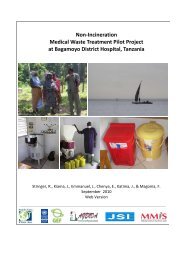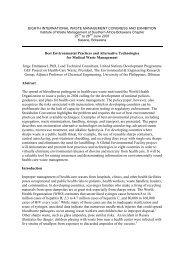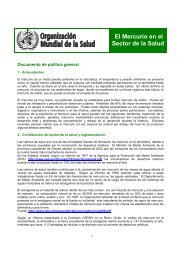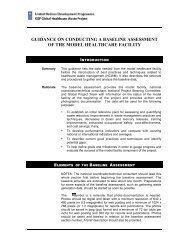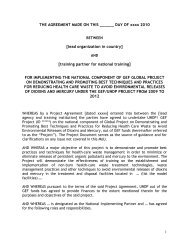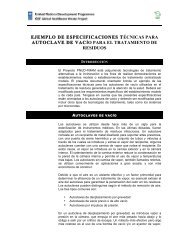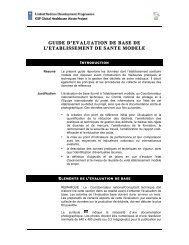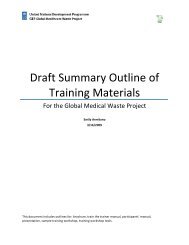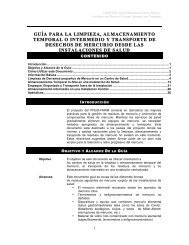Latvia
Latvia
Latvia
You also want an ePaper? Increase the reach of your titles
YUMPU automatically turns print PDFs into web optimized ePapers that Google loves.
Health systems in transition<br />
<strong>Latvia</strong><br />
The average length of hospitalization time for all the palliative care beds<br />
in <strong>Latvia</strong> is approximately 10–12 days, and 20 of the 25 abovementioned beds<br />
are statutorily financed. The remaining five beds at the Riga East Hospital are<br />
financed on a fee-for-service basis.<br />
Another example of mixed public–private financing for palliative care is at<br />
the private Bikur-Holim Hospital in Riga. Palliative care is provided for any<br />
patient who needs it (not only cancer patients), and this is partly financed by<br />
the United States international aid programme HOPE at this hospital.<br />
In 2004, nine palliative care beds were opened at the Iecava nursing house,<br />
a social care centre near Riga for cancer, neurology and cardiology patients.<br />
Moreover, since 2007, additional palliative care beds have also become available<br />
in Irlava Hospital, Livani Hospital, Mazsalaca Hospital and Ventspils Hospital.<br />
In 2004, “only” 57.4% patients were discharged from the palliative care unit<br />
due to death. Access to palliative care is not equally distributed around the<br />
country, as 84% of patients in 2004 were from Riga City alone.<br />
Since 2001, outpatient consultations with a specialist in palliative care are<br />
available at the Centre of Oncology at the Riga East Hospital for cancer patients<br />
and their relatives, financed by public funds (with a patient fee). The number<br />
of consultations increased from 300 in 2001 to 1026 in 2004, which indicates<br />
the necessity of this service.<br />
There are several activities for child specialized palliative care as well.<br />
In 1998 an NGO for child palliative care was founded, and the first palliative<br />
care service was offered at the Children Clinical University Hospital.<br />
This service provides consultations for patients within various departments of<br />
the hospital, consultations with the patient’s relatives throughout <strong>Latvia</strong>, and<br />
home care for patients of Riga City and Jurmala. The team consists of two<br />
medical doctors, a social worker and chaplain.<br />
General (nonspecialized) palliative care in <strong>Latvia</strong> is provided by family<br />
doctors. Also, patients on waiting lists for specialized care and after discharge<br />
from hospital are in the care of these doctors. In 2003 there was a small-scale<br />
survey of <strong>Latvia</strong>n family doctors regarding oncology patient care. Questionnaires<br />
were sent to 190 doctors with a response rate of 50%. It was concluded that there<br />
exists an information gap between specialized oncology services and family<br />
doctors. Also, only 37% of the respondents had attended specialized oncology<br />
courses (with pain relief questions usually included), and 12% were not able to<br />
cover the financing of necessary medications for their patients (allocated limits<br />
are below actual needs, despite legislation declaring that every appropriate<br />
patient should get the necessary pharmaceuticals free of charge).<br />
Most <strong>Latvia</strong>n specialists in palliative care completed their education abroad.<br />
There is no recognized specialist accreditation in this field in <strong>Latvia</strong>.<br />
202





